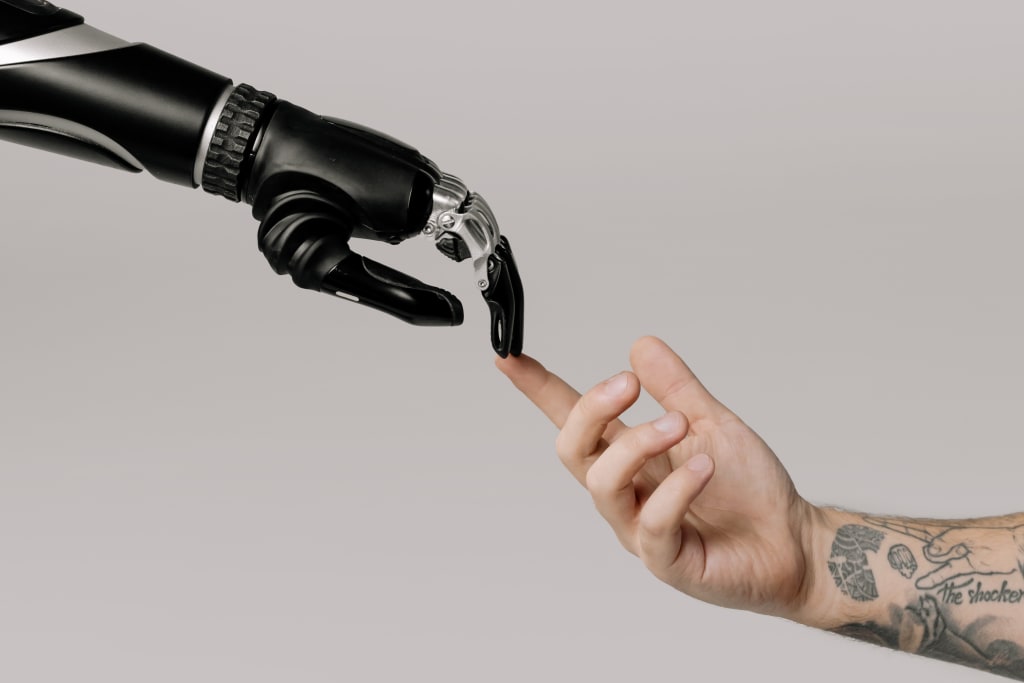"From Sci-Fi to Reality: The Astonishing Rise of Artificial Intelligence and its Profound Impact on Our World"
Unleashing the Power of Artificial Intelligence!

Introduction
Artificial Intelligence (AI) has emerged as a transformative force, revolutionizing various industries and reshaping our daily lives. With its ability to simulate human intelligence and perform complex tasks, AI is increasingly becoming an integral part of our modern world. In this article, we will explore the rise of artificial intelligence, delve into its impact across industries, and examine how it is shaping our everyday lives.
1. Understanding Artificial Intelligence
To comprehend the impact of AI, it is essential to understand its fundamental concepts. AI refers to the simulation of human intelligence in machines, enabling them to learn, reason, and perform tasks autonomously. Machine Learning (ML) and Deep Learning (DL) are subsets of AI that enable algorithms to learn from data and make predictions or decisions without explicit programming.
2. AI in Industries: Transforming the Landscape
Artificial intelligence is disrupting industries by introducing automation, efficiency, and innovation. In healthcare, AI aids in diagnosis, drug discovery, and personalized medicine. In finance, AI enables fraud detection, risk assessment, and algorithmic trading. Manufacturing benefits from AI-driven robotics and predictive maintenance, while transportation explores autonomous vehicles and intelligent traffic management. The retail sector employs AI for personalized recommendations, inventory management, and supply chain optimization. AI is also making significant strides in sectors such as agriculture, energy, education, and entertainment, transforming processes and unlocking new possibilities.
3. Enhancing Everyday Life with AI
AI has become seamlessly integrated into our daily routines, improving convenience, efficiency, and personalization. Virtual assistants like Siri, Alexa, and Google Assistant use natural language processing and machine learning to understand and respond to our commands, aiding in tasks such as setting reminders, playing music, and managing smart home devices. AI-powered recommendation systems personalize our online experiences, suggesting movies, products, and news articles based on our preferences. AI-driven navigation apps optimize routes, estimate arrival times, and offer real-time traffic updates, enhancing our travel experiences. Moreover, AI is revolutionizing the way we interact with social media, healthcare apps, customer service chatbots, and even our smartphones' camera capabilities.
4. AI in Education: Transforming Learning Experiences
Artificial intelligence is making significant strides in the field of education, revolutionizing the way we learn and acquire knowledge. AI-powered educational platforms and virtual tutors personalize learning experiences, adapting to individual needs and providing tailored feedback. Intelligent tutoring systems utilize machine learning algorithms to understand students' strengths and weaknesses, delivering customized learning paths and resources. AI-driven automated grading systems streamline the evaluation process, providing timely feedback to students and optimizing educators' time. Furthermore, AI can assist in identifying patterns in student performance, helping educators identify areas for improvement and implement targeted interventions.
5. AI in Healthcare: Advancing Diagnosis and Treatment
The healthcare industry is experiencing a profound transformation through the integration of artificial intelligence. AI-powered algorithms analyze vast amounts of medical data, assisting in the diagnosis of diseases, predicting treatment outcomes, and identifying potential risks. Image recognition algorithms aid radiologists in the detection of abnormalities, improving diagnostic accuracy. Natural language processing enables the extraction of valuable insights from medical records, enhancing decision-making and patient care. AI-based chatbots and virtual health assistants provide personalized recommendations and guidance, improving access to healthcare information. The potential for AI in healthcare is immense, ranging from precision medicine and drug discovery to remote patient monitoring and telemedicine.
6. AI and Sustainability: Addressing Environmental Challenges
Artificial intelligence has the potential to address pressing environmental challenges and promote sustainability. AI algorithms can analyze vast amounts of data related to climate patterns, pollution levels, and energy consumption to provide insights and enable informed decision-making. Smart grids and energy management systems leverage AI to optimize energy distribution, reducing waste and carbon emissions. AI-enabled precision agriculture techniques optimize resource usage and improve crop yield, contributing to food security. Additionally, AI plays a crucial role in monitoring and protecting endangered species through image recognition and predictive modeling.
7. Ethical Considerations and Challenges
The rise of artificial intelligence brings forth ethical considerations and challenges. Issues such as bias in algorithms, privacy concerns, job displacement, and potential misuse of AI technologies require careful attention. Ensuring fairness, transparency, and accountability in AI systems is crucial to avoid reinforcing existing biases or infringing upon individual rights. Responsible AI development must involve diverse perspectives and ethical frameworks to create systems that benefit society as a whole.
8. Future Trends and Opportunities
The future of artificial intelligence holds immense promise, with exciting trends and opportunities on the horizon. Advancements in AI research and technologies are expected to enable breakthroughs in natural language understanding, computer vision, and robotics. The Internet of Things (IoT) and AI integration will lead to intelligent, interconnected systems that optimize energy usage, healthcare monitoring, and smart cities. AI-driven advancements in autonomous vehicles, virtual reality, and augmented reality will redefine our experiences in transportation, entertainment, and education. Moreover, as AI evolves, the potential for addressing global challenges, such as climate change, healthcare access, and poverty, becomes more tangible.
Conclusion:
Artificial intelligence is a transformative force that is reshaping industries and permeating our daily lives. From healthcare to finance, retail to transportation, AI is revolutionizing processes, enhancing efficiency, and fostering innovation. With advancements in machine learning, deep learning, and the integration of AI with IoT, the possibilities for AI-driven advancements are boundless. However, responsible AI development, ethical considerations, and addressing potential challenges are critical for ensuring a positive impact on society. As we embrace the rise of artificial intelligence, we must strive for a balance between technological advancement and human values, harnessing the power of AI to create a future that benefits all.
About the Creator
Enjoyed the story? Support the Creator.
Subscribe for free to receive all their stories in your feed. You could also pledge your support or give them a one-off tip, letting them know you appreciate their work.





Comments
There are no comments for this story
Be the first to respond and start the conversation.